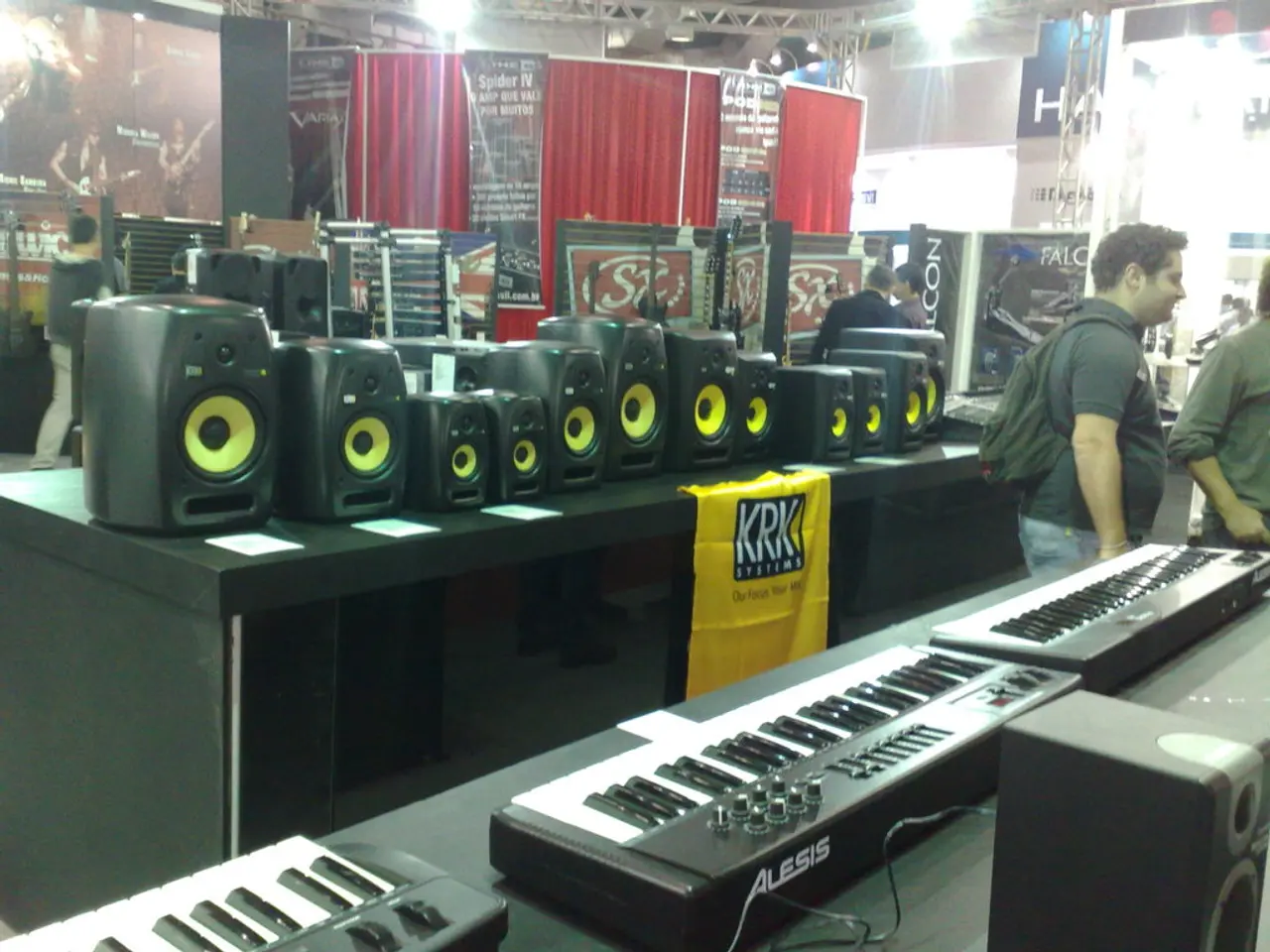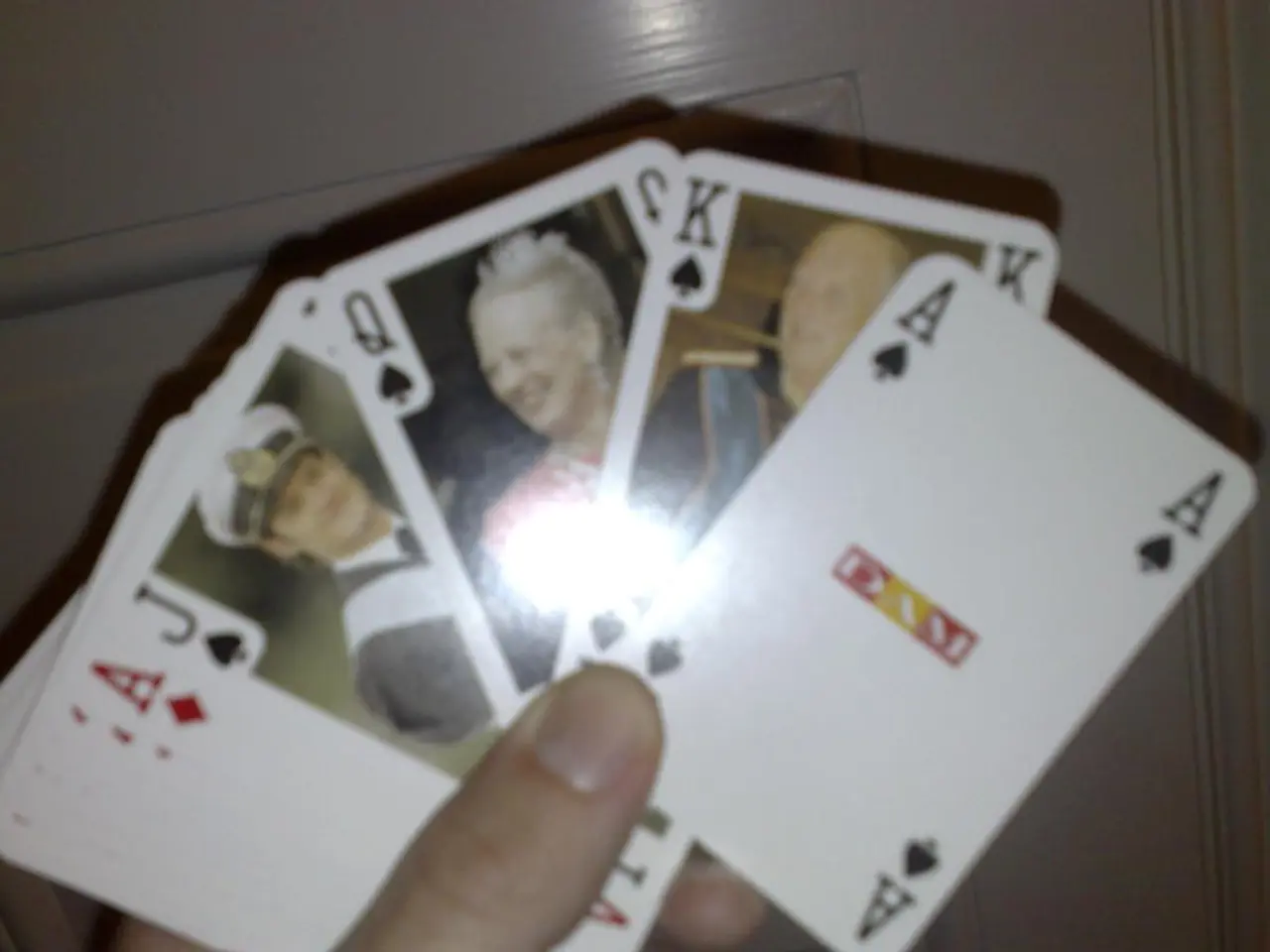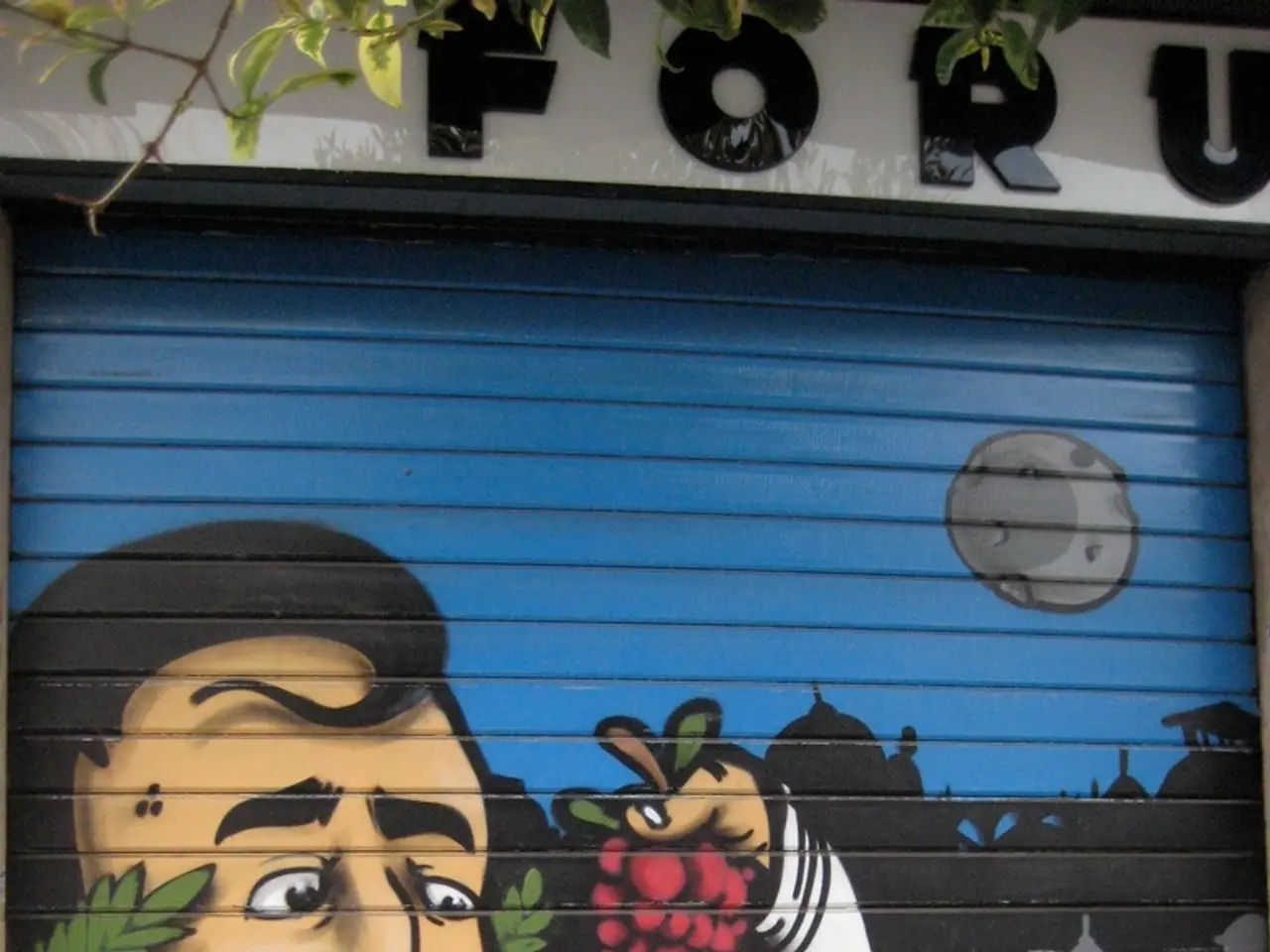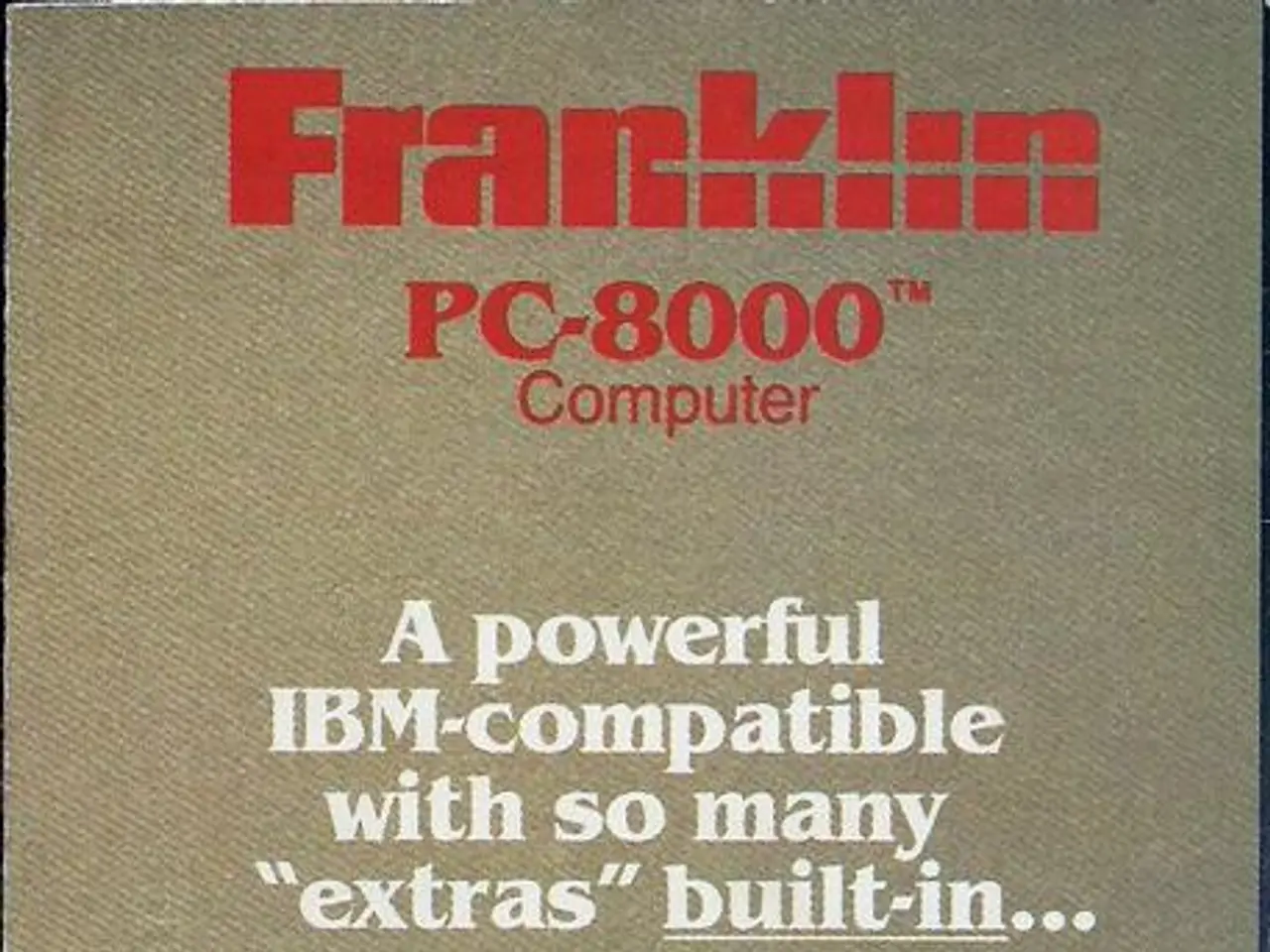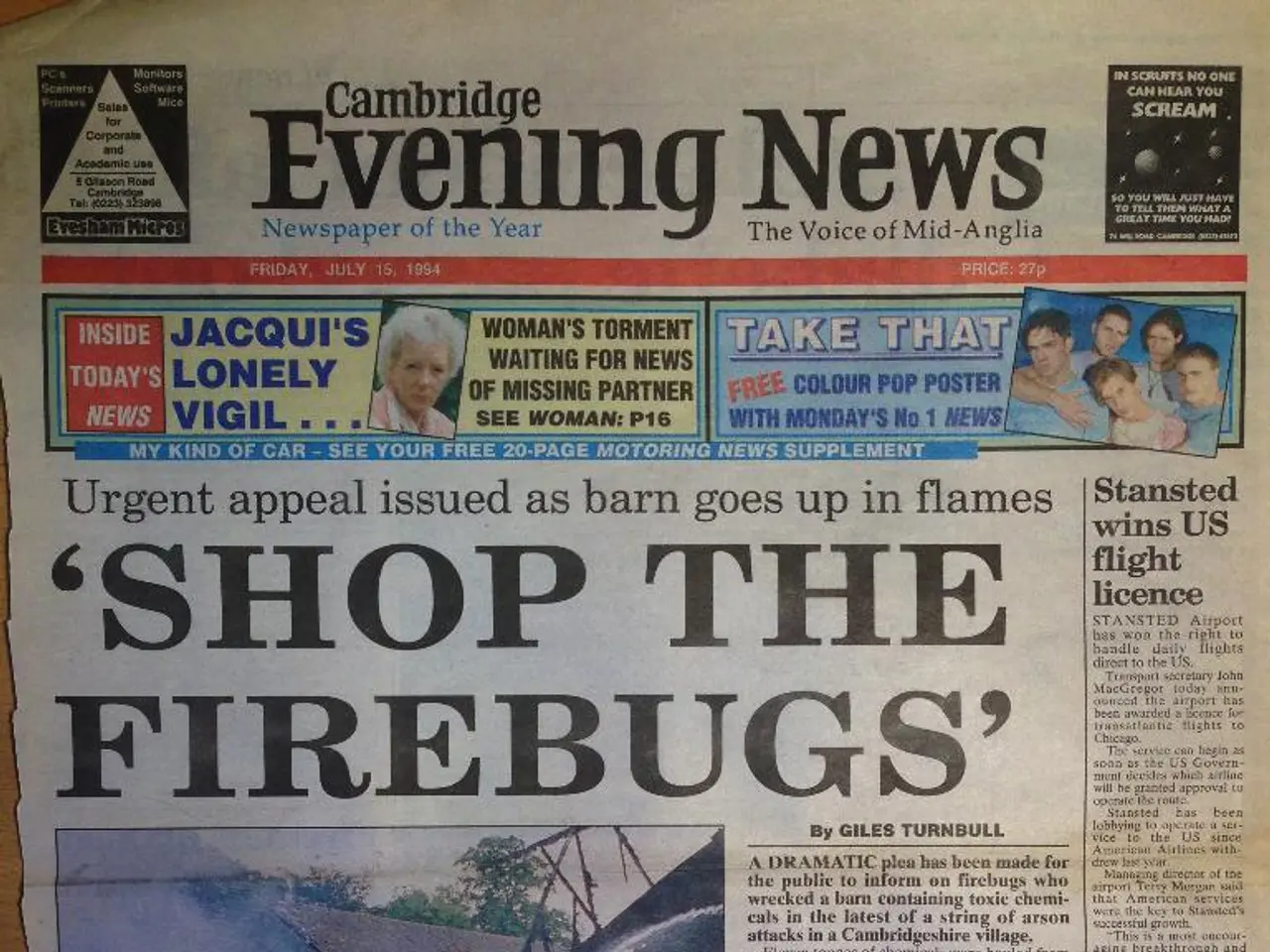Warning Issued to Public About Deceptive Advertisements at Casinos Prohibiting Online Gaming
In the rapidly evolving landscape of online gambling, several legitimate casinos in the United States have raised concerns about bogus online gaming ads using their likenesses. Recently, Massachusetts' Plainridge Park Casino and MGM's Beau Rivage issued warnings about such ads, with Jake's 58 Casino Hotel in New York and Ho-Chunk Gaming in Wisconsin being among the affected casinos.
Offshore gambling outfits, operating from countries and territories friendly to iGaming such as Malta, the Isle of Man, Anjouan, Gibraltar, Curacao, the Philippines, Ukraine, and others, are the primary culprits behind these misleading ads. These platforms are not affiliated with the casinos they exploit, and their operations are illegal in states where iGaming is prohibited.
The use of Jake's 58 Casino Hotel's logos, photos, and branding in these illegal online gaming ads is unauthorized. Similarly, the Golden Nugget Casino in Danville, Ill. faced issues with fraudulent ads on social media platforms. The situation is not unique to these casinos; numerous establishments across the US have reported similar problems with their branding being stolen for ads promoting illegal online gaming enterprises.
Despite the absence of specific federal regulations explicitly preventing offshore gaming websites from using legitimate casinos' likenesses in online advertisements, enforcement against these sites is not non-existent. State-level gaming commissions and attorneys general have recently sent dozens of cease-and-desist directives to such platforms.
However, the enforcement is mostly a patchwork of state-level unauthorized gambling sanctions and general intellectual property protections, rather than a specific, unified federal or state regulation explicitly prohibiting such marketing practices. For instance, the Unlawful Internet Gambling Enforcement Act of 2006 (UIGEA) prohibits gambling businesses from accepting payments for illegal online betting but does not explicitly regulate marketing practices offshore operators use online.
In the absence of direct federal regulation, the protection of legitimate casinos' likenesses in advertising could fall under trademark or unfair competition laws. However, these are civil legal avenues, not gaming regulatory prohibitions. State-level gaming commissions actively regulate licensed operators within their jurisdictions and may impose advertising standards on legitimate, licensed casinos, but they do not generally control offshore websites not licensed within the US.
It's important to note that iGaming is legal in only seven states in the US, while online sports betting is legal and regulated in 33 states and Washington, DC. However, iGaming is only allowed in seven states: Connecticut, Delaware, Michigan, New Jersey, Pennsylvania, Rhode Island, and West Virginia.
Jake's 58 Casino Hotel, like many other affected casinos, has warned the public that social media posts advertising online gaming through their casino are fraudulent. The public is advised to exercise caution and verify the authenticity of any online gambling platforms before engaging in such activities.
This article was first posted on April 15, 2025, and last updated on June 23, 2025. The complexities surrounding offshore online gambling and the use of legitimate casino likenesses in ads continue to pose challenges for the gaming industry and regulatory bodies.
- Caesars, Online Slots, and other legitimate US casinos, such as Jake's 58, Ho-Chunk Gaming, and Golden Nugget, have raised concerns about fraudulent online gambling ads using their likenesses.
- Offshore gambling outfits, including those operating from Malta, the Isle of Man, Anjouan, Gibraltar, Curacao, the Philippines, Ukraine, and others, are responsible for these misleading ads.
- Despite the absence of federal regulations explicitly prohibiting offshore gaming websites from using legitimate casinos' likenesses in online advertisements, state-level gaming commissions and attorneys general have issued cease-and-desist directives to such platforms.
- The Unlawful Internet Gambling Enforcement Act of 2006 (UIGEA) prohibits gambling businesses from accepting payments for illegal online betting but does not explicitly regulate marketing practices offshore operators use online.
- As iGaming is legal only in seven states in the US, fastidiousness is advised when encountering online gambling platforms, to verify their authenticity before engaging in such activities.
- In casino-and-gambling general-news, the ongoing complexities surrounding offshore online gambling and the unauthorized use of legitimate casino likenesses in ads remain contentious issues in the gaming industry and for regulatory bodies.
- Despite enforcement actions taken by state authorities, online casino-culture remains vulnerable to crime, particularly in states where iGaming is prohibited.
- In politics and casino-games, the regulation of online table games and other casino-games continues to be debated, as states grapple with the implications of iGaming within their jurisdictions.
